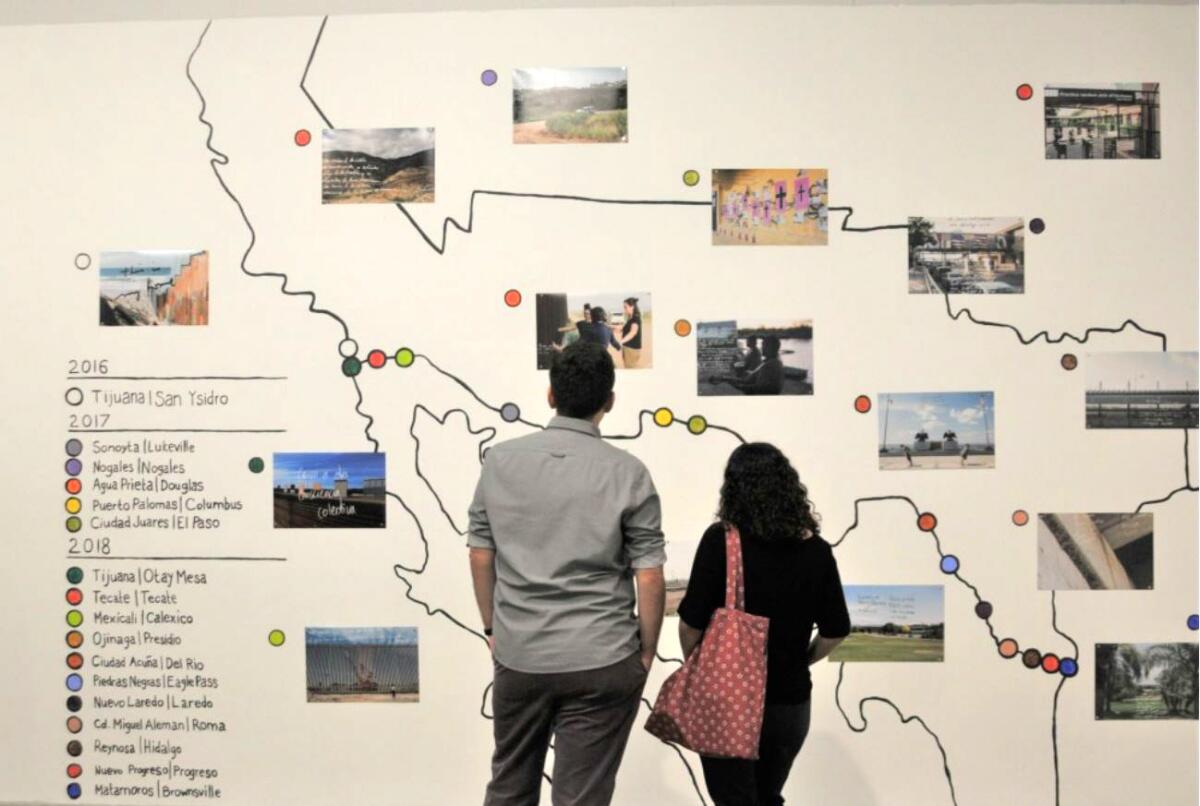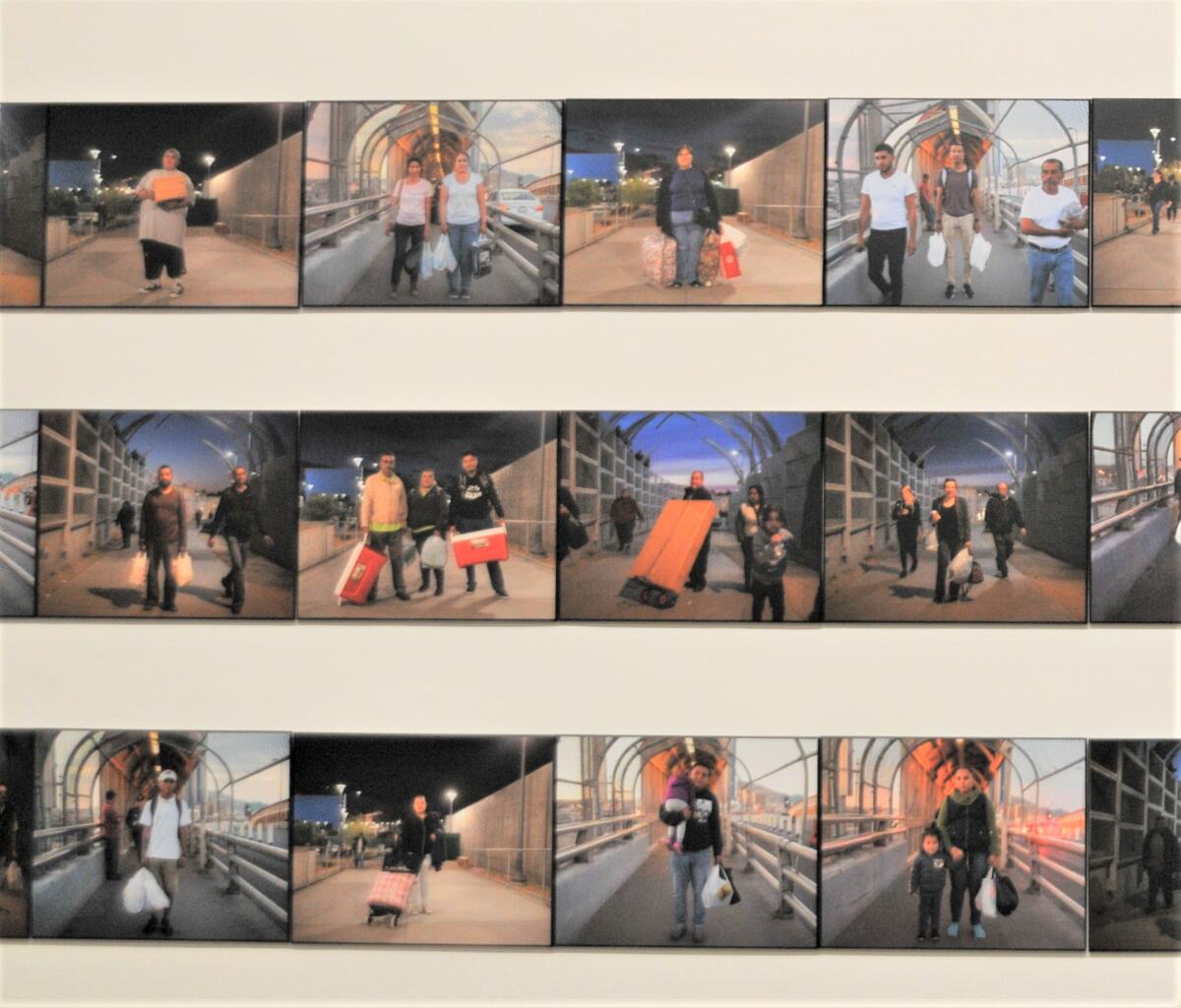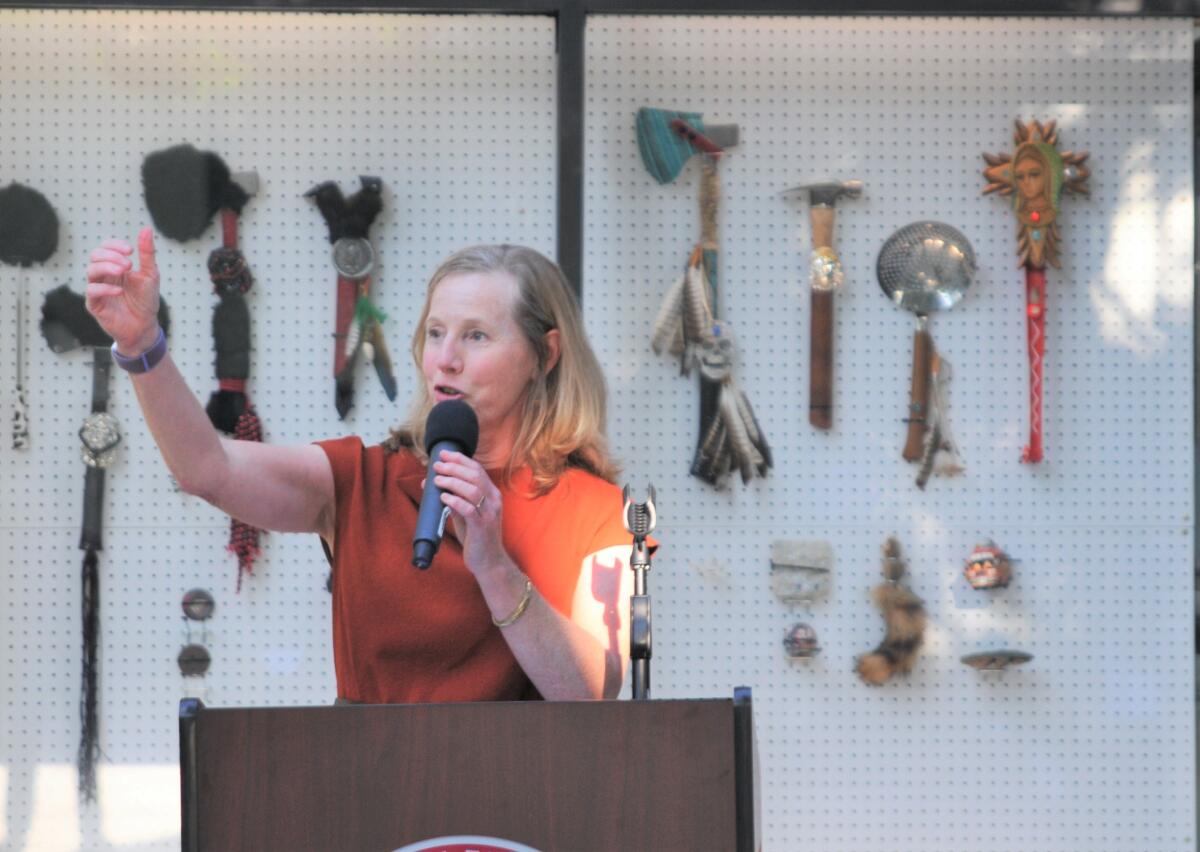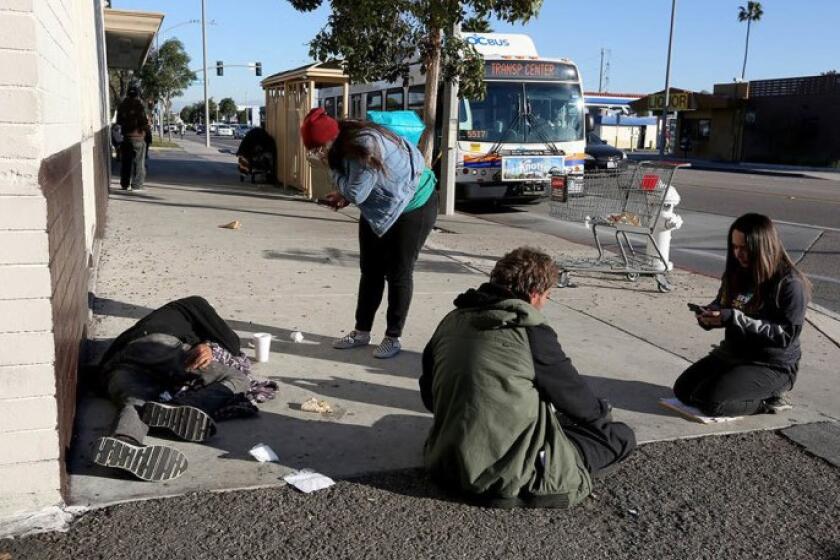Chapman University hosts exhibits, panels, screenings to examine issues surrounding the border

- Share via
The border.
The mere utterance of the word arouses a spectrum of opinions and emotions, ranging from rancor to compassion, racism to tolerance. It evokes images of a foreboding wall and refugee families seeking asylum.
Chapman University’s campus-wide art exhibit titled “La Frontera - The Border,” which is on display for the Fall semester, explores the contentious topic through art. Photos, installations, sculptures, videos and paintings are on display in four locations across campus, in addition to weekly panel discussions, lectures and screenings.
“It’s obviously a very important place at the moment,” said Chapman faculty member Marcus Herse, coordinator for the Guggenheim gallery, which houses one of the exhibits. “Every day you open the paper, and there is a new thing about what is going to happen at the border. It’s such a heated subject, [and] I think this is very timely show which goes right into the trenches of thinking about those questions.”
“It’s intended to help us as a community of students, faculty and the public engage in a really pressing issue thorough works of art and thoughtful dialogue,” said Jennifer Keene, the dean of the Wilkinson College or Arts, Humanities and Social Sciences at Chapman.

Many of the artists involved live or have lived close to the border of the U.S. and Mexico.
A piece by photographer Ingrid Leyva called “Mexican Shoppers” documents, through three rows of portraits, Mexican nationals toting shopping bags and boxes, as they cross the border back to Mexico after shopping in the U.S.
Artist Omar Pimienta, who grew up in Colonia Libertad, the oldest neighborhood in Tijuana, created a mobile consulate — an interactive art piece where exhibit attendees can turn in their voided passports, which go on the wall as part of the exhibit.
In exchange, Pimienta takes your picture and assigns a new passport which accredits the holder as a resident of Colonia Libertad, which is home to not only families who’ve lived there for generations, but also transients passing through on their way to the U.S.
“I figured I could just create a nation out of Colonia and emulate the bureaucratic processes and make people think about their citizenship,” Pimienta said.

Los Angeles artist Raul Baltazar’s sculpture “Botanica, Casa, Venado, Conejo (Botanica, House, Deer, Rabbit Coyote) features an assortment of seemingly unrelated items including tools, swords, trinkets, photos and paintings, many having symbolic meanings in Mesoamerican cultures.
“I’ve always been very inspired by the aesthetics of the botanica and how these objects are sacred objects and tools that are used for culture or the spiritual level,” Baltazar said. “So I’ve always looked at art parallel to that. I look at lot of these objects operating in that way.”
A photography exhibit titled “BorderClick: Tijuana/San Diego” in the Henley Galleria displays photos taken by individuals who cross the border daily, either for work or school.
Some of the photos capture the challenges of those border crossers, who are often labeled with negative stereotypes.
And finally, there’s a photo exhibit in Beckman Hall that features an installation created by Richard Lou showing a door attached to a frame which stands by itself on the border between Tijuana and the U.S.
“La Frontera - The Border” is a collaboration between Wilkinson College of Arts and Letters and the Peace Studies, Religious Studies and Latino Studies departments.
If You Go
What: “La Frontera - The Border”
Where: various locations at Chapman University, 1 University Dr, Orange, CA 92866
When: Though Nov. 17. The project culminates with a conference from Nov. 14 to 16, though some exhibits are extended past the new year
Information: Visit chapma.nu/2lVSnPI
All the latest on Orange County from Orange County.
Get our free TimesOC newsletter.
You may occasionally receive promotional content from the Daily Pilot.



